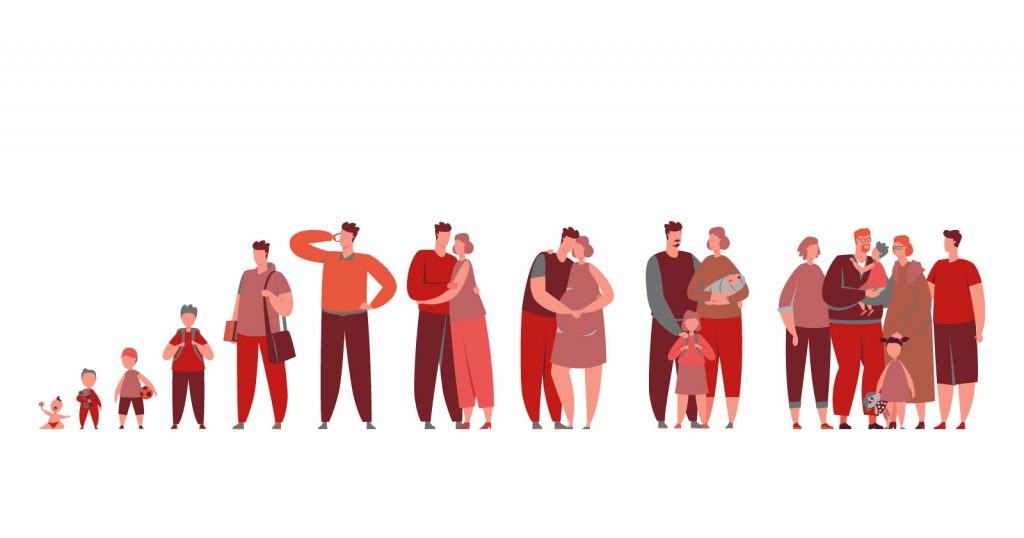


Coping with emotional pain is never easy. Its overwhelming nature can disrupt your daily life. In this article, we will discuss healthy ways to deal with it.
What is mental pain?
When you feel difficult emotions, you feel emotional pain.A person can experience emotional distress due to many different factors, including grief, loss, trauma, stress, or toxic relationships. These experiences leave their mark on the mind and body. While these experiences can empower you and teach you valuable life lessons, suppressing emotional pain can be detrimental to your health, success, and happiness. . The actions of others can sometimes cause emotional pain. Depression or anxiety can also be the cause in other cases.A person’s thoughts can often trigger emotions. Therefore, mental and emotional pain are interconnected. Having anxiety, for example, affects how you handle emotions and may prevent you from going about your usual routines. A traumatic event also causes emotional pain for some people, such as losing a loved one. Some of these signs may also lead to emotional pain:
- Fatigue
- Less time with family and friends
- Anger issues
- Having trouble eating
- No motivation to do tasks
- Feeling helpless, guilt-ridden, or hopeless Regardless of the cause, emotional pain affects many different aspects of a person’s life.It is essential to learn how to deal with it in a healthy way. Using appropriate coping mechanisms can help you heal and overcome emotional pain.
How to heal yourself emotionally? Suppressing thoughts and feelings you don’t want to have can be unhealthy. Additionally, suppressing emotional pain can manifest in physical symptoms such as depression, anxiety, panic attacks, and self-harm.Healing emotional pain takes time, patience, perseverance, and self-love.
How to overcome mental pain?
Mental pain is inevitable and anyone can experience it. The traumatic impact of emotional pain often leads to unhealthy coping mechanisms, including alcohol and drugs. Although they provide short-term pain relief, these methods cause greater damage over time.It doesn’t matter whether the pain comes from trauma, loss, or disappointment; you need to design a strategy to manage and deal with it. Here are healthier ways to cope with emotional pain:
1. Spend time doing something you love
Yes, it’s okay to cry over loss, grief, and experiences his pain. There is a saying: “Cry until it hurts no more.” And that’s natural.However, do you continue to focus on it? Will you stay in this past forever? If you want, you can try something productive to help you overcome the challenges and obstacles in life. Some people manage post-traumatic stress disorder (PTSD) after an injury by hitting a heavy bag to release the extreme tension inside them. It’s actually an effective way to deal with intense emotional pain.If your emotional pain is less intense, you can try a new hobby, focus on your career, or do things you enjoy. Try to distract yourself with something more positive.
2. Move your body.
Although emotional pain may gnaw at you, you must get up and move. Try a new sport or activity. While hiking, biking, and yoga can be great activities to occupy your time, they can also benefit you.Put your health first. Exercise is a great way to cope with emotional pain because it helps improve mood. Going for a walk will help your mood more than scrolling through social media.
3. Control your anxiety or depression.
If you’ve ever suffered from anxiety or depression, emotional pain can trigger them. Relaxation exercises, exercise or yoga can help you cope with these feelings. The best methods to improve your mood are relaxation, stress management, and cognitive restructuring. Relaxation can reduce emotional pain by allowing your muscles to relax and breathe more deeply.
4. Service through Volunteering
Volunteering builds your confidence and sense of purpose. It can also be a way to cope with emotional pain. You’ll learn new skills, form or strengthen your community connections, gain new experiences, and meet diverse people while volunteering. Likewise, giving to others can also improve your mental, physical, and emotional health. Volunteering has many benefits but does not require a long-term commitment or a lot of time.
5. Write down your feelings in a diary
Writing down your feelings gives you freedom. No one can disturb your peace of mind, let alone face criticism. Your emotions are a part of you. When you write about your feelings, you will reflect, analyze them, and learn how to change them, which will help you overcome emotional pain.
6. See a therapist
Seek advice from a therapist to manage your emotional pain if you have difficulty dealing with it. If you are experiencing mental health or emotional problems that are interfering with your daily life, you may need therapy. These therapies can help you cope with emotional pain:
Cognitive behavioral therapy is one of many treatment methods. According to the American Psychological Association, it effectively treats depression, anxiety and other disorders caused by emotional pain.Psychotherapy. This is a talking therapy that can improve your mental health. Additionally, psychotherapy can improve emotions and behavior and lead to positive changes in the brain and body.
Problem solving is also a practical part of group therapy. You can form groups to help you learn coping and social skills after trauma or loss.






